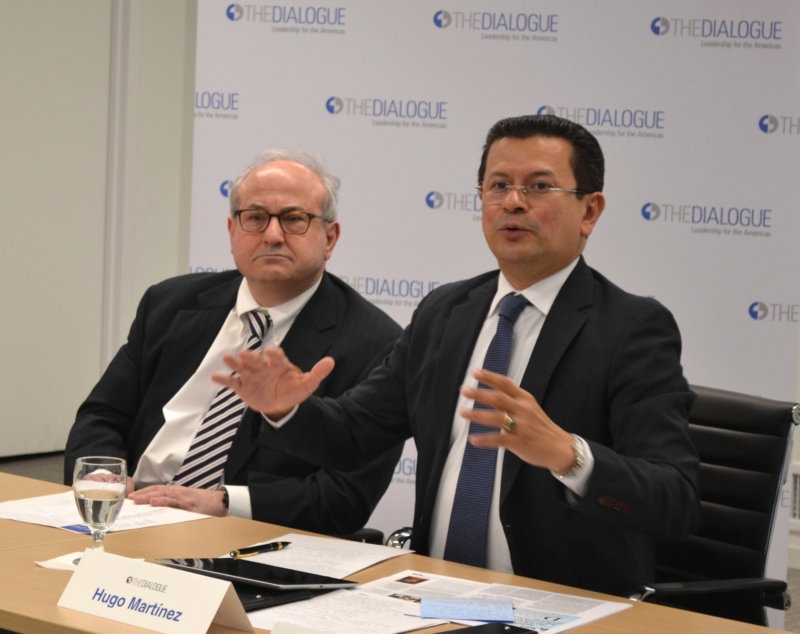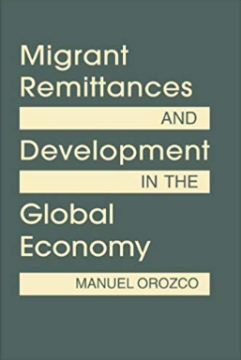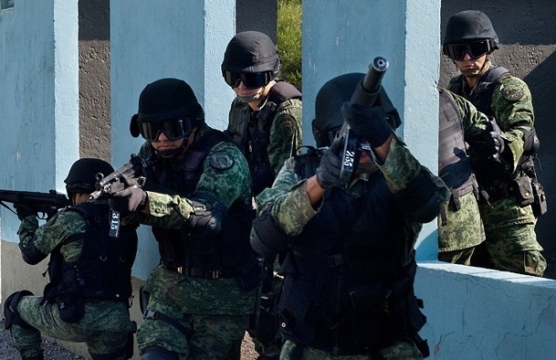IACHR Report on Citizen Security & Human Rights
Citizen security remains a top concern for most Latin American governments as crime and violence spiral out of control and cripple political and economic institutions in the region.
On Monday, December 5th, 2016, the Dialogue welcomed El Salvador’s Minister of Foreign Affairs Hugo Martínez and a small group of policy experts for a discussion on US-El Salvador relations in light of recent political developments in North and Central America. The discussion focused on the Alliance for Prosperity Plan of the Northern Triangle as the overarching policy of US engagement with El Salvador and the neighboring countries of Guatemala and Honduras.
Minister Martínez expressed confidence in the US-El Salvador relationship as a fundamentally institutional alliance capable of enduring changing Administrations. He shared his views on how shifts in the US political landscape might impact the Plan’s four pillars, which aim to reinvigorate the productive sector; invest in human capital; improve citizen security; and strengthen state institutions. Upon the opening of the discussion to include guest commentary, the conversation covered a diverse array of policy issue areas, including the protection of Salvadorans living in the US; the role of the Colombia-Mexico relationship in Northern Triangle affairs; and the observation of human rights in El Salvador’s anti-crime efforts.
Citizen security remains a top concern for most Latin American governments as crime and violence spiral out of control and cripple political and economic institutions in the region.
How do patterns of migration and remittances differ across regions? What kinds of frameworks support the contributions of remittances to local development?
Since the outbreak of the drug war, Ciudad Juárez has been plagued by unfathomable levels of violence and corruption, leading to thousands of human rights violations.
 Ben Raderstorf / Inter-American Dialogue
Ben Raderstorf / Inter-American Dialogue

